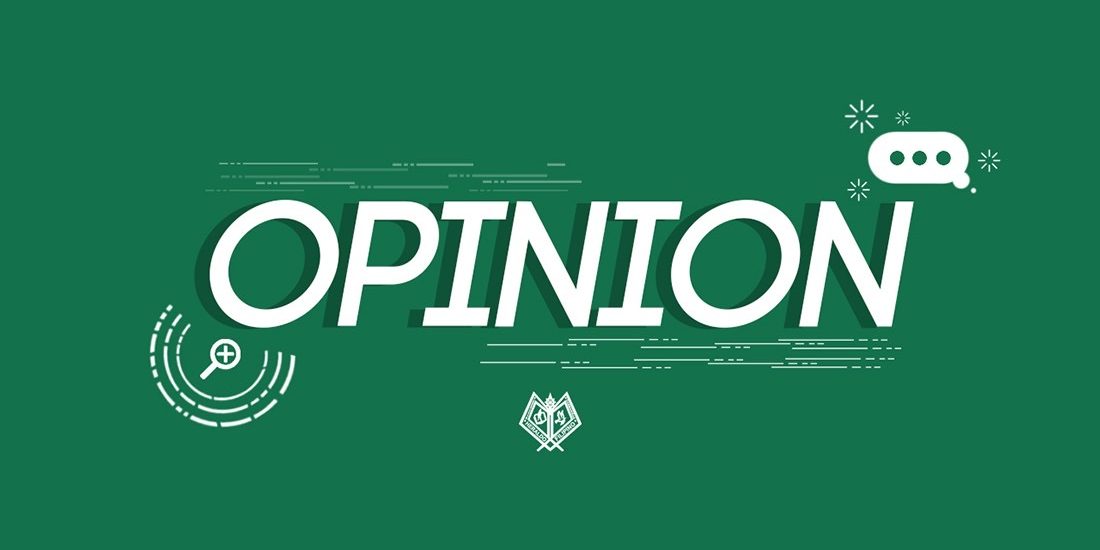Why we need to talk about this: Navigating through challenging conversations towards progress
Originally published in HF Volume 36 Issue 1
Challenging conversations about politics and other relevant issues usually comes with discomfort, especially with engaging with those who do not share the same beliefs and principles we uphold. Due to anticipated complexities, we would rather not talk it out and just merely ignore it at all cost.
We may find ourselves in dire straits one way or another in initiating or participating in critical discourse, but it can be a way to address serious issues and face what needs to be changed. Initiating these conversations head-on is the tough first step that requires one’s brave spirit – and it matters, even more, when future and progress are on the line.
Breaking through challenging dialogues
Dialogues may come in different forms, ranging from small talks to discussions of relevant matters. Engaging in conversations has been a way of understanding more about the world, as well as connecting to people and communities.
Besides this, dialogues can also happen beyond those that are within our reach. In the age of technology where everyone has the freedom to express their thoughts in lengthy posts or 280 character tweets, social media has then become the new battleground for conversations – from the most shallow talks to the more profound ones.
With the vast scope of the internet, we are more likely to cross paths with those who do not share the same values with us on crucial matters, like politics. There are some instances in tough conversations that might not have gone well, leading to heated arguments that are often swept under the rug after it happens.
Such conversations get stuck that we resolve to avoid altogether instead due to the fear that we associate with conflicts, disagreements, and tangled beliefs. Besides this, the fear of uncalled judgment from others also kicks in, as everything we say would be vulnerable to public scrutiny.
In the article This is Why We Avoid Difficult Conversations, Nicklas Balboa explained that we, humans, see challenging social situations as cognitively costly or mentally draining, which requires courage and effort that are not too easy to build. As we anticipate that some situations will be much more difficult to handle, turning our backs from conversations instead of facing them at hand becomes a more convenient choice.
In tackling salient issues in a tough discourse, there is also the tendency to put ourselves on the pedestal as we believe that we are morally right and more knowledgeable than anyone else. It might be easier to acknowledge that we are right rather than taking the opportunity to consider both sides of the coin.
As we talk to others about relevant issues, thinking that we are more morally grounded compared to everyone else forfeits the very purpose of initiating conversations. As dialogues require more than just a will to speak up, holding this belief might not make any difference, which might make us wonder why we cannot hear one another when we both talk so loudly.
Embracing the uncomfortable
Other struggles also arise in discourse that we encounter such as dismissive attitudes and the refusal to acknowledge different perspectives. Unfortunately, some even result in personal attacks, ad hominem arguments, and direct threats.
Thinking of another way instead of avoiding it once and for all, how it can be easier to do or make it less uncomfortable for us and the person that we want to converse with.
“Understand that feeling uncomfortable results from an underlying belief that what you want to do is wrong,” life coach Pam Bauer wrote in the article Why You Avoid Difficult Conversations. It may seem like disturbing calm waters, which tend to make us believe that openly sharing our stance on something might lead to cutting ties with someone as they do not agree with the beliefs and principles we justify.
The exchange of ideas is often framed in a bad light, as many perceive that direct confrontation always brings undesirable outcomes. Instead, we resolve to evade it and hold back from communicating our thoughts to other people.
The first step to do in such a situation is getting comfortable with the idea of being uncomfortable. As Bauer pointed out, recognition and acceptance of discomfort make it less uncomfortable instead of simply running away from it. Confronting the feeling of being uncomfortable can become the starting point to determine the best way to handle the conversation instead of turning away from it.
“You give yourself a foundation to stand up for yourself, your needs, and your values and can allow the other person to express theirs, instead of trying to manage or manipulate their emotions to keep you comfortable,” Bauer shared.
Besides the fear of being in uncomfortable situations, it takes hard work to engage in complicated conversations compared to trivial chatters. We might think that the tensions that come with complicated topics can be a barrier that leads to conflicts, but it is where the possibility for innovation and improvement emerges, as Jason Jay and Gabriel Grant emphasized in their 2017 book Breaking Through Gridlock: The Power of Conversation in a Polarized World.
Change can begin with conversations
“We are all part of a “global conversation” that has been occurring since the dawn of man, and within this large spectrum exists millions of smaller conversations that are just as important,” Sophia Gratas quoted in the article The Importance of Conversation.
Knowing how to navigate through tough discussions with others can bring us a step closer toward transforming perspectives. There is no easy route when it comes to navigating complex individual dialogues, but this can prepare us for engaging in larger discourses that go beyond two or three people – conversations that birth development and progress in our society.
As challenging as it may seem, it pays off to start conversations with those who are closest to us. Conversations play a crucial role in maintaining and developing relationships with our loved ones, and talking about tough matters lets them know how we think about things. Through discussing matters with someone else, we can also immersively learn more about others’ perspectives whether they align with values we uphold or not.
“You need not get too hung up on where to start practicing. First, you talk to one person, then another person,” Jay and Grant highlighted.
***
As we try to navigate through discourse around us, being involved in relevant conversations not only tests our ability to communicate with others but also our tenacity in listening to and receiving opposing views.
Critical discourses can also be a way to explore other people’s beliefs and consider how their perspectives are shaped. Disagreements and conflicts may occur that lead to uncomfortable situations but it is through overcoming these challenges in conversations that can make a difference – not only in how we see the world but also in how we can transform it into actions that contribute to change.
Art by Charles Howard Gaa





